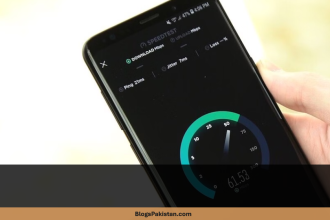Pakistan’s digital revolution is in hyperdrive, and Jazz—a titan in telecom—is rewriting its playbook. With 73 million mobile users and a digital ecosystem touching over 100 million lives, the company is shedding its “telecom-only” identity. Instead, it’s embracing a bold vision: becoming a ServiceCo that powers fintech, entertainment, cloud solutions, and beyond. But this metamorphosis isn’t just about technology—it’s about people. Jazz’s newly launched Leadership Principles are the secret sauce driving this transformation, fostering a culture where every employee, from interns to executives, leads with purpose.
Why Traditional Leadership Models Fail in the Digital Era
Telecom companies globally face a common challenge: adapting legacy systems and mindsets to fast-paced digital demands. For Jazz, the shift to a ServiceCo meant rethinking leadership entirely. Hierarchical structures and rigid processes? Outdated. Instead, the focus is on agility, collaboration, and ownership at all levels.
“Leadership isn’t a position—it’s a mindset,” emphasizes Tazeen Shahid, Jazz’s Chief People Officer. “We need every team member to think like an entrepreneur, whether they’re troubleshooting network issues or designing AI-driven fintech tools.”
This philosophy aligns with global trends. A 2023 Gartner report found that organizations with decentralized leadership structures are 3x more likely to exceed customer expectations. Jazz’s principles aim to replicate this success by empowering employees to act decisively, innovate fearlessly, and prioritize long-term impact over short-term wins.
Jazz’s Leadership Blueprint: Four Tiers, One Mission
The company’s framework is designed to break silos and unify teams under shared goals. Let’s unpack how each tier operates:
Tier 1: Everyone Leads
From customer service agents to software developers, every Jazz employee is expected to:
- Act with integrity: Transparency in decisions, whether resolving a complaint or handling data privacy.
- Think customer-first: Anticipate user needs—like simplifying JazzCash’s app for rural users with low literacy.
- Embrace diversity: Seek input from colleagues of varying genders, ethnicities, and professional backgrounds.
- Drive innovation: Pitch ideas, even if they challenge the status quo.
Example: A network engineer proposing solar-powered towers to reduce outages in Pakistan’s flood-prone regions.
Tier 2: People Managers as Coaches, Not Controllers
Middle management roles are evolving. Instead of micromanaging, Jazz’s people managers must:
- Build psychological safety: Encourage teams to take risks without fear of blame.
- Mentor, not dictate: Use weekly check-ins to identify skill gaps and align personal growth with company goals.
- Champion inclusivity: Ensure meetings amplify quieter voices and address unconscious bias.
Impact: Teams led by empathetic managers report 56% higher engagement (Gallup, 2022).
Tier 3: Future Leaders as Disruptors
High-potential employees in the FLT program undergo rigorous training in:
- Data-driven decision-making: Using analytics to optimize Tamasha’s content recommendations.
- Cross-functional collaboration: Partnering with JazzCash to integrate insurance offerings via FikrFree.
- Scalable problem-solving: Designing cloud solutions (Garaj) that help SMEs digitize affordably.
Case Study: FLT members recently reduced SIMOSA’s customer query resolution time by 40% using AI chatbots.
Tier 4: Executives as Visionary Stewards
The ELT balances profitability with purpose by:
- Investing in moonshot projects: Exploring blockchain for secure mobile transactions.
- Advocating for policy change: Lobbying for improved digital infrastructure in Pakistan.
- Measuring societal impact: Tracking how JazzCash’s microloans uplift female entrepreneurs.
Customer Obsession: The North Star
Jazz’s digital services thrive on a simple question: “Does this make the customer’s life easier?” Consider:
- JazzCash: Over 15 million users leverage its mobile wallets, microloans, and bill payments—many in regions with no brick-and-mortar banks.
- Tamasha: Buffering times slashed by 30% in 2023 after user feedback highlighted connectivity issues.
- SIMOSA: A self-care portal letting users manage data plans without call-center delays.
“We’re not just solving pain points—we’re predicting them,” says a Jazz product lead.
Inclusion: The Innovation Multiplier
With Pakistan’s median age at 22, Jazz knows diversity isn’t optional. Initiatives include:
- Women in Tech: 20% female workforce participation, with goals to reach 30% by 2025.
- Regional Representation: Hiring talent from Balochistan, Khyber Pakhtunkhwa, and Sindh to design hyperlocal services.
- Accessibility Wins: Urdu-first interfaces and voice-enabled features for non-literate users.
Result: A 2023 survey found 89% of employees feel their ideas are valued, up from 62% in 2020.
Innovation in Action: From Fintech to Cloud
Jazz’s agility shines in its pivots:
- JazzCash x Agri-Tech: Partnering with farmers to offer crop insurance via mobile apps.
- Garaj for SMEs: Cloud tools helping 50,000+ businesses streamline inventory and payments.
- Tamasha Originals: Producing local dramas to compete with global streaming giants.
Scaling Challenges: Upskilling 10,000+ Employees
Transitioning a massive workforce requires:
- Microlearning Platforms: Bite-sized courses on AI, cybersecurity, and design thinking.
- Leadership Labs: Simulations where managers navigate crises like service outages or PR scandals.
- Feedback Culture: Monthly “reverse mentoring” sessions where junior staff train executives on Gen-Z trends.
Jazz’s Ripple Effect on Pakistan’s Economy
The company’s transformation could catalyze broader change:
- Digital Literacy: Partnerships with NGOs to train 1 million women in mobile banking by 2026.
- Job Creation: 5,000 new roles expected in cybersecurity and data science by 2025.
- Investor Confidence: Attracting global VC interest in Pakistani startups, especially in fintech.
The Bigger Picture: Redefining Corporate Leadership
Jazz’s experiment offers lessons for traditional industries worldwide:
- Empower Every Voice: Frontline employees often spot opportunities executives miss.
- Adapt Fast, Fail Smart: Testing ideas in small markets (e.g., piloting InsurTech in Lahore) minimizes risk.
- Profit Meets Purpose: Financial inclusion and shareholder returns aren’t mutually exclusive.
As Pakistan’s digital economy surges toward $100 billion, Jazz isn’t just chasing growth—it’s shaping a nation’s future. And with leadership redefined as a behavior, not a title, the company is ensuring that every employee, from interns to the C-suite, has a stake in that success.










